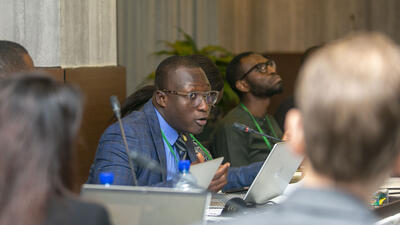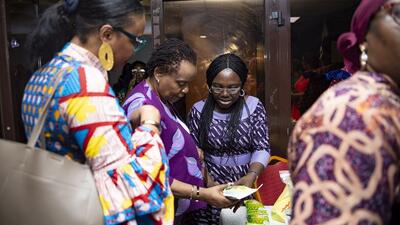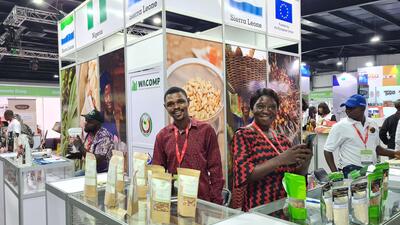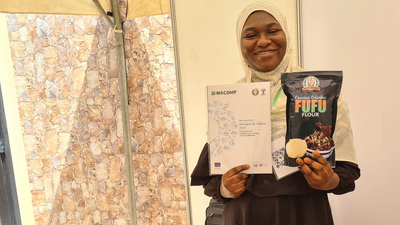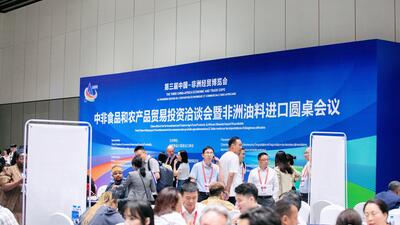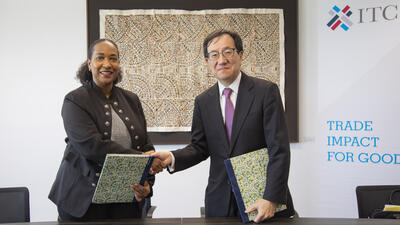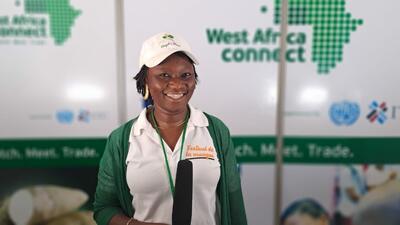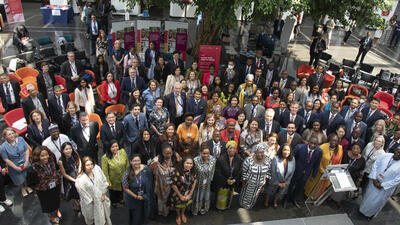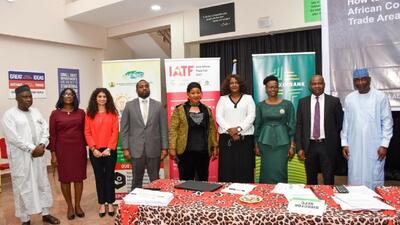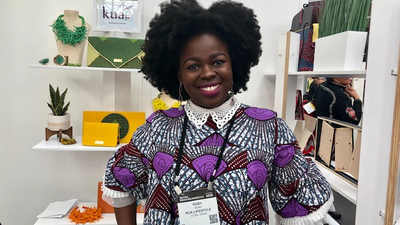
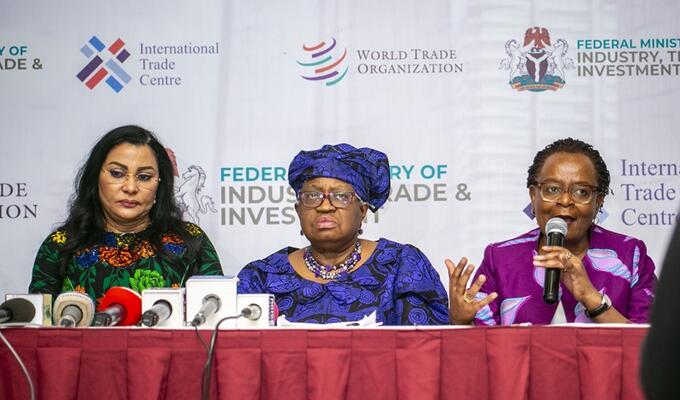
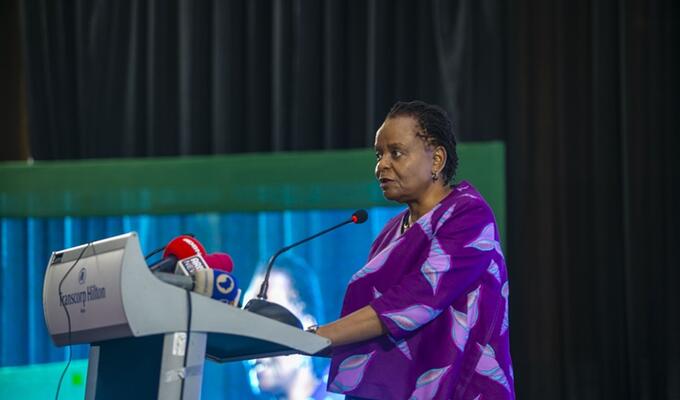
WTO, ITC to support Nigeria’s agribusiness sector
Abuja, Nigeria - ITC Deputy Executive Director Dorothy Tembo delivered her opening remarks for the STDF Project launch.
Her Excellency Ms. Doris Uzoka-Anite, Minister of Industry, Trade and Investment of the Federal Republic of Nigeria;
Director General of the WTO, Dr. Ngozi Okonjo-Iweala;
His Excellency Ambassador Adamu Mohammed Abdulhamid, Permanent Representative of the Federal Republic of Nigeria at the WTO in Geneva;
Distinguished guests;
All protocols observed.
Greetings and thank you for the opportunity to share a few remarks on behalf of ITC. We are honoured to be here for the launch of this new STDF project in Nigeria together with the WTO Director-General, Dr. Ngozi Okonjo-Iweala.
Nigeria plays a critical role in ITC’s global efforts to support MSMEs. We already have an office here at the ECOWAS Commission and we collaborate closely with the Federal Ministry of Industry, Trade and Investment, as well as partners such as the Nigerian Export Promotion Council, who show us every day why “multipliers” are essential for improving lives and livelihoods at scale.
We’re grateful for the chance to build on this collaboration under this WTO STDF project. Over the past decade, we’ve seen the difficulties that Nigerian agribusinesses, especially those in the cowpeas and sesame seeds value chains, have experienced in navigating the food safety standards of their main export markets. That’s where this project comes in, where together we’ll be helping these firms and regulatory bodies as they improve compliance with these standards, and in turn achieve higher-value added products and access new markets.
Nigeria has 40 million MSMEs, responsible for roughly 8 in 10 jobs, and many are agribusinesses. As Africa’s most populous economy, what happens here has regional and global implications—including for the SDGs and the AU’s Agenda2063.
That means we must make trade for Nigeria’s agribusinesses more connected and inclusive. I will now outline briefly what ITC is doing to help make that possible.
First, we’re helping Nigerian agribusinesses access the unparalleled new opportunities offered by digital connectivity. Under the Japan-funded IDEAS project, for instance, we’re working to help more producers of processed food in Nigeria’s Imo State, especially women, youth, and displacement-affected people, use e-commerce effectively.
Second, our flagship programme on women and trade, SheTrades, is very active in Nigeria. We are fortunate to have the NEPC as the local host of the SheTrades Nigeria Hub, and last year alone, over 250 women entrepreneurs took part in trainings and accessed other resources for connecting to new markets.
These efforts are set to grow quickly, following the recent launch in Abu Dhabi with the WTO of the new Women Exporters in the Digital Economy Fund. Nigeria’s women exporters will soon be able to apply to the WEIDE fund for support to achieve their business dreams.
We’re also working on putting in place a trade intelligence service for Nigeria’s Federal Ministry of Industry, Trade & Investment, which will help MSMEs, business support organizations, and policymakers access the information they need for understanding market and export-related conditions, among other trade-related data.
Third, I’d like to talk about competitiveness and regional integration. As the African Continental Free Trade Area evolves, we’re devoting extensive efforts through our One Trade Africa programme to ensure that Nigeria’s small businesses, especially those led by women, youth, and vulnerable communities, can use it to their advantage.
Nigeria is also a critical country for our West Africa Competitiveness Programme (WACOMP), where we’ve been working to support agribusinesses in value chains like cassava to attend trade fairs, undertake trainings in export development, and much more.
The launch of this new STDF project marks the start of an exciting new chapter for Nigeria’s agribusinesses, and for ITC.
Like the STDF partnership itself, this project relies on collaboration. I’ve mentioned how NEPC is a critical partner, and we’re also grateful to be working alongside key institutions in Nigeria that specialize in sanitary and phytosanitary measures, as well as private sector associations.
I’d like to thank them, and all of the Nigerian stakeholders and collaborators who are championing this project, including the Nigerian Federal Ministry of Industry, Trade & Investment, the NEPC, SON, and NAFDAC.
I want also to take this opportunity to acknowledge the excellent working relationship and valuable support that ITC is getting from His Excellency Ambassador Adamu Mohammed Abdulhamid. Please allow me also to express our appreciation to those development partners that are supporting our work in Nigeria, including the EU, Japan, the UK’s Foreign, Commonwealth and Development Office, and the WTO STDF.
You all make me hopeful for the future. I would now like to call on this impressive team to work with us as we consolidate our efforts in Nigeria and bring the ideal of sustainable development closer within reach. Thank you.




